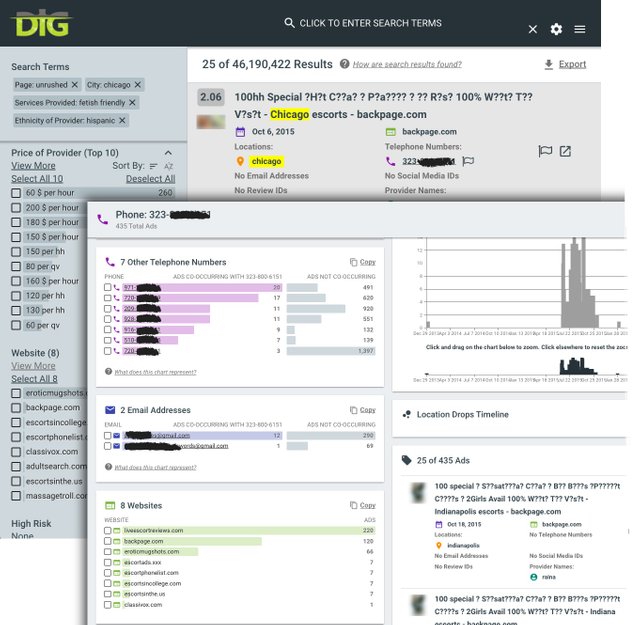

FIGHTING HUMAN TRAFFICKERS: AN AI TOOL IS CREATED TO “DIG” INTO SEX RINGS AND DECODE OPEN WEB DOMAINS. MORE THAN 200 LAW AGENCIES NOW USE IT.
JUNE 7, 2018WHAT'S NEW
Human traffickers don’t play by the rules. They use elaborate encryption and often post sex ads only once—changing phone numbers, names, and locations constantly, all in a bid to avoid detection.
But the tide is turning with a new investigative tool. It uses artificial intelligence algorithms primarily to scour open and, to a lesser extent, dark Web domains for human traffickers and decode their cloaked lingo selling sex slaves.
The developers call this technology “a real use-case of AI for Social Good,” countering the doomsday fears held by some about artificial intelligence and proving itself unmatched in fighting online exploitation, the designers say in a new study.
What is the Domain Insight Graph, or DIG?
Researchers at the University of Southern California label their tool the “Domain Insight Graph (DIG) system,” an end-to-end investigative knowledge discovery system that scours the Web for digital breadcrumbs scattered in sex ads, allowing investigators to find victims and shut down sex rings.
The tool does many things: It’s artificial intelligence, software, a search engine, and a builder of graphics and charts.
The system is so successful that it’s now being used by over 200 law enforcement agencies around the country.
The Department of Defense is also experimenting with possibly using the tool for even broader investigations like securities fraud, narcotics, mail shipment fraud, counterfeit electronics, and illegal weapons sales.
“We built and evaluated a prototype, involving separate components for information extraction, semantic modeling and query execution, on a real-world human trafficking Web corpus containing 1.3 million pages, with promising results,” the authors say, referring to their early work. Those crawled pages have since grown to 25 million.
The results are encouraging.
“The system is ready for use in real-world operational scenarios involving point-fact and cluster queries,” Mayank Kejriwal, Pedro Szekely, and Craig Knoblock in their research paper “Investigative Knowledge Discovery for Combating Illicit Activities.”
Hi! I am a robot. I just upvoted you! I found similar content that readers might be interested in:
https://publications.computer.org/intelligent-systems/2018/06/07/human-sex-trafficking-dark-web-ai-investigation-tool/
Downvoting a post can decrease pending rewards and make it less visible. Common reasons:
Submit